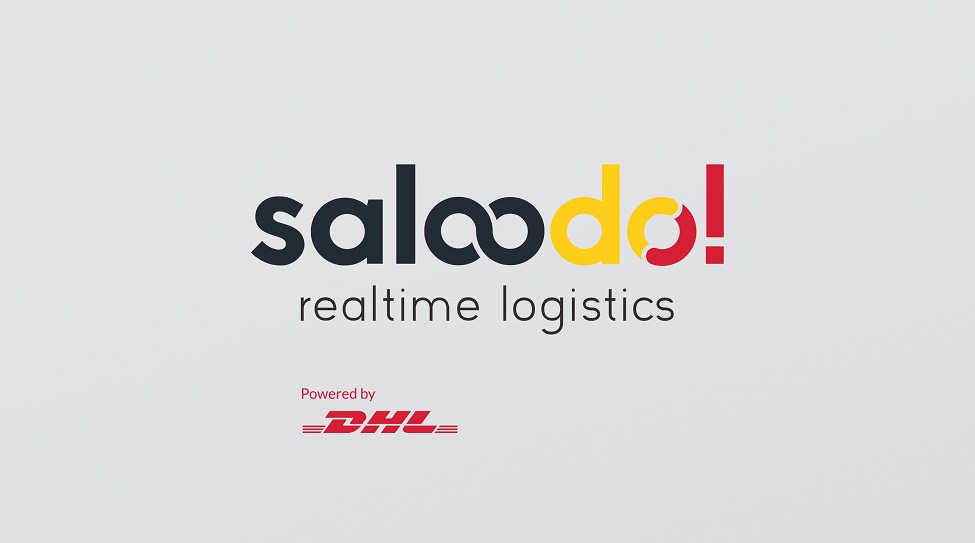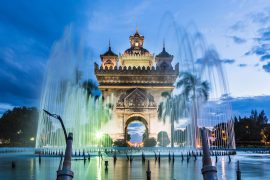JOHANNESBURG, South Africa: Digital freight forwarder Saloodo, a subsidiary of DHL Global Forwarding, the leading international provider of air, sea and road freight services, today launched its digital logistics platform for shippers and transport providers in South Africa, bringing the first digital road freight solution to the region.
The company in a Press Release, distributed, African Press Organization, APO, stated that this is the first international digital road freight platform to be launched in the continent; Providing shippers and carriers a one-stop platform for road freight connections for domestic shipments within South Africa and international movements to several neighbouring countries. The company also stated that further expansion to connect shippers and carriers within Sub-Saharan Africa (SSA) is planned for early 2020.
An efficient road freight network is a key conduit of trade within a geographically wide-spread country such as South Africa but also with 16 landlocked countries within Sub-Saharan Africa (SSA). However, much of the region’s road freight operations remain fragmented and highly traditional, missing out on the visibility, efficiency, and security that logistics technology offers.
“Digital transformation is a top priority for the industry and given the demographics, we expect demand for digital transformation to be driven by emerging markets globally,” said Tobias Maier, CEO of Saloodo! The Middle East and Africa. “Africa is the world’s youngest continent with 60% of the continent below 25. This is a dynamic generation of digitally-minded young adults, demanding smart, digital solutions both on the business and home front.”
With South Africa as its launch pad into Sub-Saharan Africa, Saloodo! is the first digital logistics platform available in the region that offers a single, simple and reliable interface for shippers and transport providers to best optimize cost, routes, cargo and transit times. Backed by DHL’s global and regional footprint and expertise, all contractual relationships on the platform are organized via the existing local DHL entity, providing trust and peace of mind to carriers and shippers alike.
“With real-time visibility, Saloodo! will inject greater transparency and efficiency to the road network in the region, enabling shippers – from small enterprises and start-ups to large multinational groups – to find trusted and reliable freight carriers in South Africa. This will, in turn, help carriers manage existing fleets and optimize capacity with full truckload shipments,” Maier added.
With a market value of R 121.1 billion (~€7.5 billion) in 2018, road freight volumes in South Africa have been increasing steadily, exhibiting a growth of 5.6% in June 2019 when compared to the previous corresponding period. Equally, intra-Africa exports already accounted for 26 percent and 12 percent of South Africa’s 2018 total exports and imports respectively – almost 50% of which are with neighbouring countries in this landlocked region.
The intuitive and simple-to-use platform was first launched in 2017 in Germany to connect companies and transport providers within Germany or from Germany throughout Europe. Moving swiftly into emerging markets, the digital freight service was introduced in the Middle East just six months ago where some 350 shippers are already registered. Collectively, the service has grown to more than 30,000 shippers and over 12,000 carriers covering 35 countries. During this time, the trucks managed by Saloodo! have travelled a total distance of 18 million km, which is equivalent to approximately 450 round-the-globe trips or more than 23 voyages to the moon and back.
Africa Investment Forum 2019: $67.6 billion dollars of deals tabled, $40.1 billion investor interest secured
JOHANNESBURG, South Africa: It has been a week of deals and more deals as Investors and business leaders gathered in South Africa for this year’s investment in Africa Forum, organized by the African Development Bank. It was dealt that brought participants to the 2019 Africa Investment Forum and they were not disappointed. The second Forum ended on a high note Wednesday, with 56 boardroom deals valued at $67.6 billion tabled – a 44% increase from last year.
A Press Release circulated by the African Press Organization reported that fifty-two deals worth $40.1 billion secured investor interest compared with $37.8 billion dollars last year.
During the 2018 edition of the Forum, 61 transactions valued at $46.9 billion were tabled for discussions in boardroom sessions and 49 deals worth $38.7 billion, secured investment interest.
Presiding over the session: “Unveiling the Boardroom Deals”, African Development President Akinwumi Adesina said that was the spirit of the Africa Investment Forum: “transactions, transactions, transactions. Deals, deals, deals!”
Over 2,221 participants attended this year’s Forum from 109 countries, 48 from Africa and 61 from outside of Africa. They came from the government, the private sector, development finance institutions, commercial banks, and institutional investors.
”The Forum is a platform that will change Africa’s investment landscape,” Chinelo Anohu, the Forum Senior Director said. “Africa is ready to engage on its own terms.”
Key moments of the Forum included:a $600 million COCOBOD deal for Ghana, for cocoa processing, warehousing, and processing$58 million for the Alithea Identity Fund for women concession agreement for the Accra Sky Train, worth $2.6 billion Forum focused on projects and advancing deals spanning several sectors, including Energy, Infrastructure, Transport and Utilities, Industry, agriculture, ICT and Telecoms.
“Now the hard work begins to fast-track these deals to financial closure… Africa is bankable,” Adesina said.
African Development Bank Group becomes a shareholder in Africa Finance Corporation
– AfDB Invests US$50 million in AFC’s equity – AfDB becomes the second investment-grade Supranational Finance Institution to join the membership of and invest in AFC.
LAGOS, Nigeria, November: Africa Finance Corporation, AFC, a leading infrastructure solutions provider in Africa, today announced that the African Development Bank Group (“AfDB”), Africa’s highest investment-grade rated (AAA) supranational finance institution, has invested US$50 million in the equity of AFC. This was contained in a report, by the African Media Agency.
AfDB’s investment in AFC will enable both institutions to accelerate infrastructure development and delivery on the continent by deepening co-financing opportunities, joint implementation, knowledge transfer and capacity development for the benefit of Africa. The addition of AfDB as a shareholder and DFI member of AFC complements AFC’s strategy of addressing Africa’s infrastructure deficit with AfDB’s stated mission to help reduce poverty, improve living conditions for Africans and mobilize resources for the continent’s economic and social development.
The equity investment in AFC further broadens AFC’s shareholder base and follows recent equity investments in AFC from African Re-Insurance Corporation and the Republic of Ghana. As part of the equity investment, AfDB will have representation on the AFC Board of Directors.
Samaila Zubairu, President & CEO of AFC, commented on the completion of the equity investment by AfDB: “AFC welcomes AfDB as a shareholder and strategic partner, with whom we would continue our collaboration journey to address Africa’s infrastructure deficit and challenging business environment. AFC’s mandate is a strategic fit for AfDB’s objective to integrate, energize and industrialize Africa.”Dr Akinwumi Adesina, President of AfDB also commented on the announcement: “AfDB shares AFC’s vision of developing Africa-led responses to the Continent’s socio-economic development. To date, we have already worked jointly to deliver transformational projects with tangible impact over the years.
“In becoming a shareholder, this development is, therefore, a natural evolution in our partnership, which in turn will result in delivering solutions to Africa’s infrastructure challenges at a faster pace. These solutions will adopt the highest standards, generate value to stakeholders, and foster sustainable development and economic growth across the African continent.




